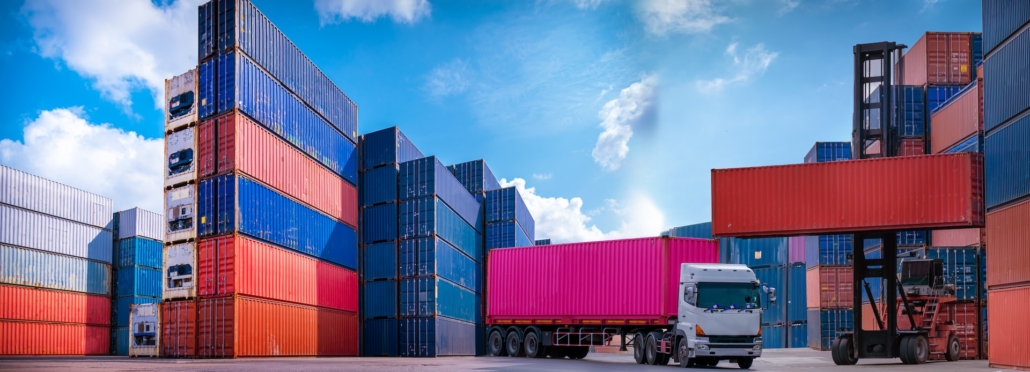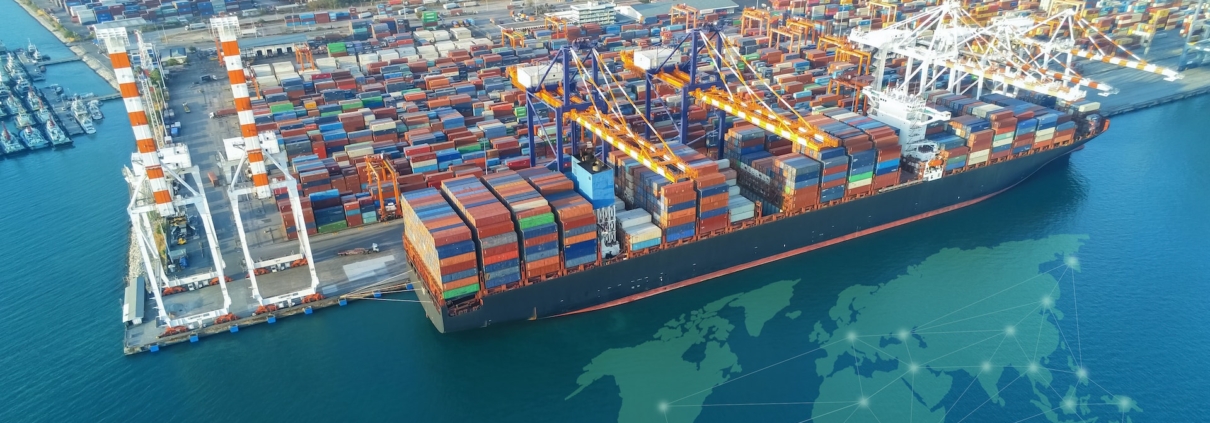Global Supply Chain Management – Our Comprehensive Guide
Global supply chains have become integral to the modern business landscape, enabling access to raw materials and preliminary products worldwide at affordable prices and within deadlines. Managing these intricate processes is known as Global Supply Chain Management (SCM), aimed at controlling and optimizing these complex networks.
Companies of all sizes, from multinational corporations to small and medium-sized enterprises (SMEs), now recognize the indispensable benefits of global supply chains. Our article delves into this engaging subject matter, providing an in-depth analysis.
Table of contents
What is Global Supply Chain Management?
The term has been prevalent in economics for over 40 years. In 1981, supply chain management (SCM) was first defined, evolving in interpretation over the subsequent years.
Today, SCM encompasses all activities within a company’s value chain, converting raw materials into finished goods and delivering them to customers. Depending on the industry, SCM may include design, procurement, production, warehousing, shipping and distribution.
Global supply chain management addresses the challenges of globalization by examining all aspects of local supply chains on a global scale, enabling more effective management of these intricate processes.

Why is Global Supply Chain Management Vital?
Companies in the DACH region face intense global competition. SMEs, in particular, rely on efficient global supply chains to offer competitive prices.
Global supply chain management helps establish and administer streamlined supply chains worldwide, providing a significant competitive edge both locally and globally.
Advantages of Global Supply Chain Management:
- Lower Costs: Procurement costs decrease significantly due to lower labor and production costs in other countries.
- Higher Inventories: Reduced costs allow companies to hold larger inventories, facilitating easier absorption of smaller delays.
- Improved Quality: Global suppliers often specialize in serving firms worldwide, resulting in enhanced quality of raw materials and precursors.
- Diversification and Risk Mitigation: Global supply chains offer numerous top-tier suppliers, diversifying options and mitigating risks.
Various industries can achieve numerous benefits through the implementation of global supply chains and efficient supply chain management. In today’s business environment, it is imperative that no company overlooks this vital subject.
Challenges of Global Supply Chain Management
The global supply chain has faced significant scrutiny in recent years, grappling with challenges such as supply bottlenecks with the potential to disrupt the entire world. Delays in deliveries, primarily caused by long lead times, also pose a notable challenge.
Deliveries with a long lead time
While local suppliers might offer shorter delivery times, the global supply chain, characterized by longer delivery times, necessitates prudent planning.
High complexity due to many variables
Managing a global supply chain is an intricate process that grows increasingly complex when dealing with various suppliers worldwide. Skilled global supply chain managers are essential to navigate different delivery times, routes, and time zones efficiently.
Modern enterprise software provides crucial assistance in monitoring and managing global supply chains. Small and medium-sized enterprises (SMEs) in the DACH region should prioritize a robust digitalization strategy.
Lack of diversification despite options
Despite available options, many companies lacked diversification and experienced production halts after the COVID-19 outbreak, resulting in a scarcity of raw materials, intermediate products, and finished goods. Single-source dependencies were keenly felt during this challenging time.
While globalization provides various opportunities, increasing diversification comes with added expenses. Striking a balance between cost and security of supply is essential to avoid endangering production in emergencies.
Limited visibility into local production conditions
Limited understanding of local production conditions is prevalent in the DACH region. Sustainability and working conditions are gaining significance, with companies relying on elevated benchmarks in global supply chain management to foster eco-friendly production and equitable working environments.

Additional Education on Global Supply Chain Management
Numerous universities offer courses specifically devoted to supply chain management or provide a concentration in economics with a focus on supply chain management. This emphasizes the significant importance of global supply chains in today’s business world.
Private continuing education courses, facilitated by experienced professionals from the business world, establish a concrete link to real-life business scenarios. For individuals currently employed, this form of supplementary instruction is often preferable as it allows for efficient comprehension and assimilation of contemporary concepts.
Areas of Focus for Additional Training
A comprehensive continuing education program in Global Supply Chain Management should address various sub-areas, including setting up, controlling, and monitoring global supply processes, optimizing organizational structures and processes, and supporting global suppliers and customers.
Measures for additional cost reduction will be implemented through international contract negotiations. Participants will have the opportunity to acquire knowledge on a wide range of important topics, detailed in an individual training plan developed in advance.
Rapid Establishment of Proficient Global Supply Chain Management
Many companies have commenced or are on the brink of globalizing their supply chains or optimizing existing chains. Prolonged training and education may not always be the solution, particularly when swift execution is required. In such cases, the proficiency of an interim manager with vast expertise and extensive experience is crucial. This individual can not only assist in the operation itself but also impart their expertise. A combination of interim management for supply chain management and further training of relevant employees is undoubtedly the most effective approach to firmly and efficiently establish the know-how within the company.
Conclusion-Global supply chain management is an important component of successful SMEs today
Efficient global supply chain management is essential for the success of SMEs in today’s globalized economy. It is imperative for companies to leverage global supply chains to maintain long-term competitiveness by reducing costs and risks while maintaining quality.
Even SMEs in the DACH region cannot disregard Global Supply Chain Management anymore, as they face rising competition from international rivals. With adequate training, you can establish appropriate conditions for implementing this crucial practice in your organization.
Discover more about 3i ACADEMY’s interim management and SCM expertise, or contact us promptly to learn more.






Leave a Reply
Want to join the discussion?Feel free to contribute!